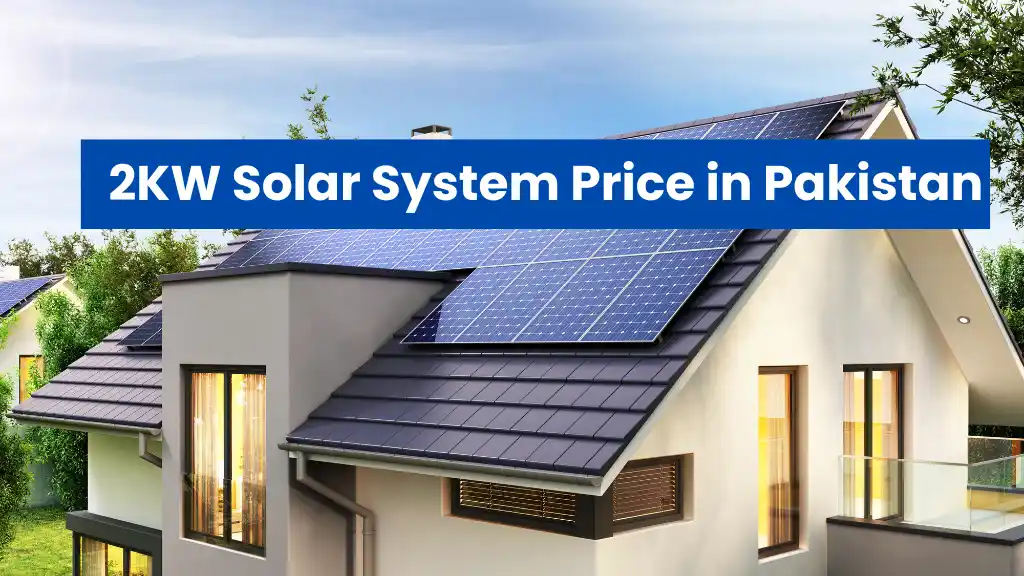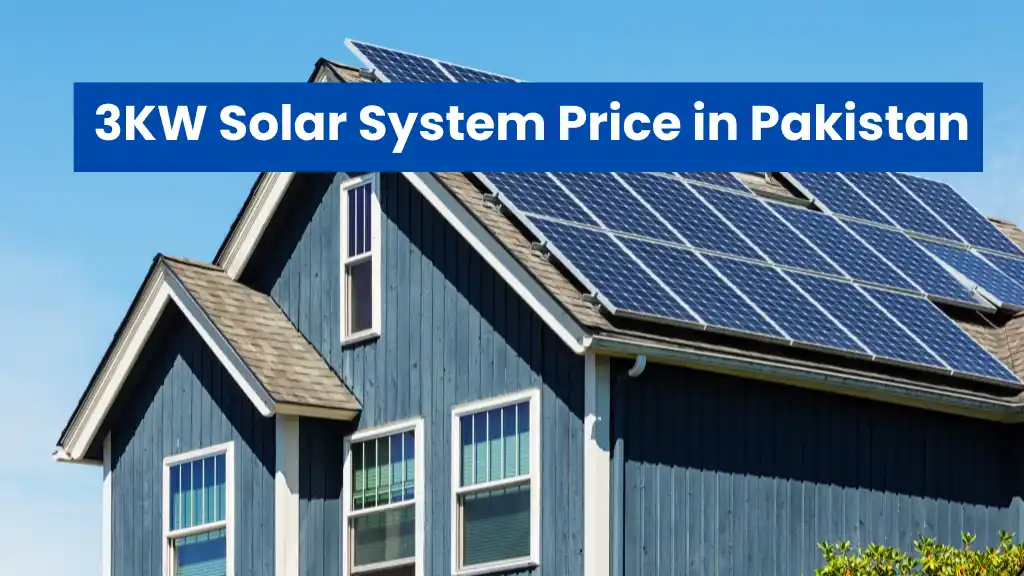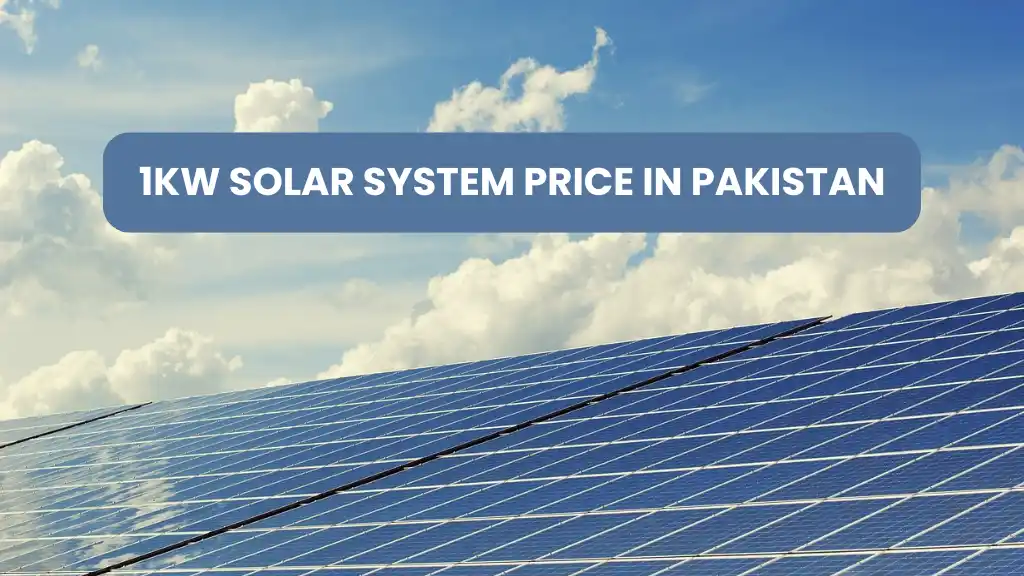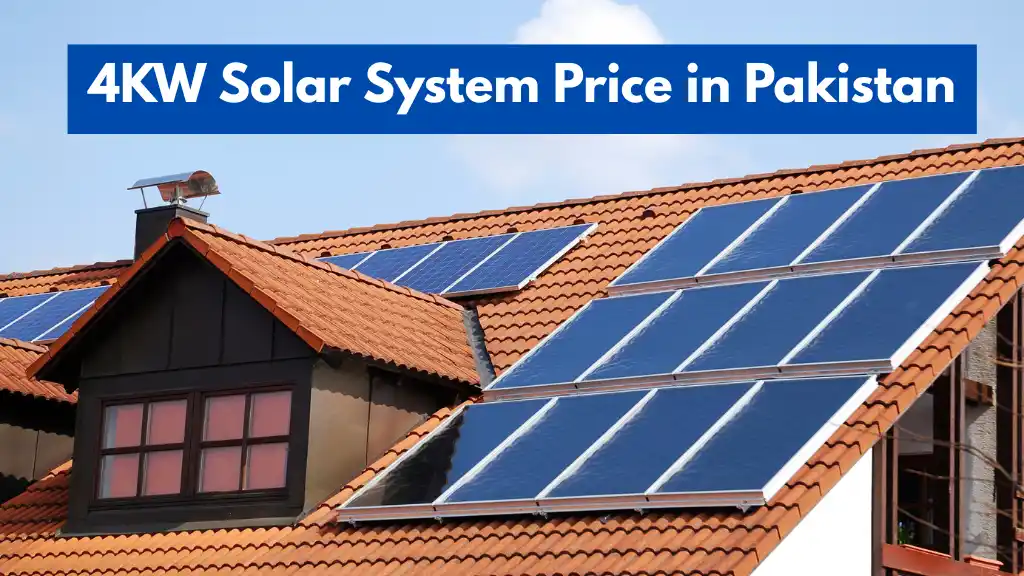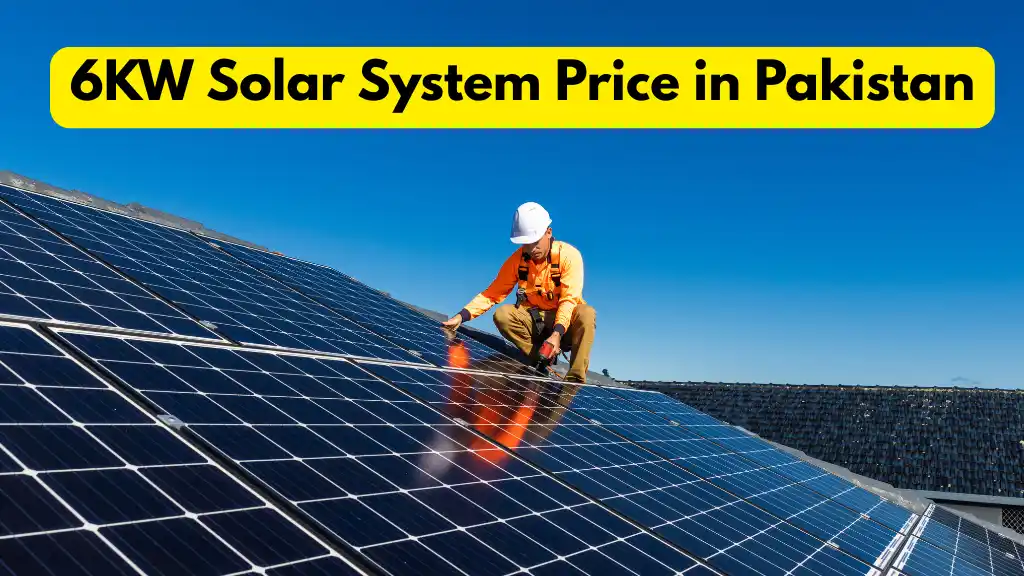5kW Solar System Price in Pakistan: – Latest Price Updates 2025
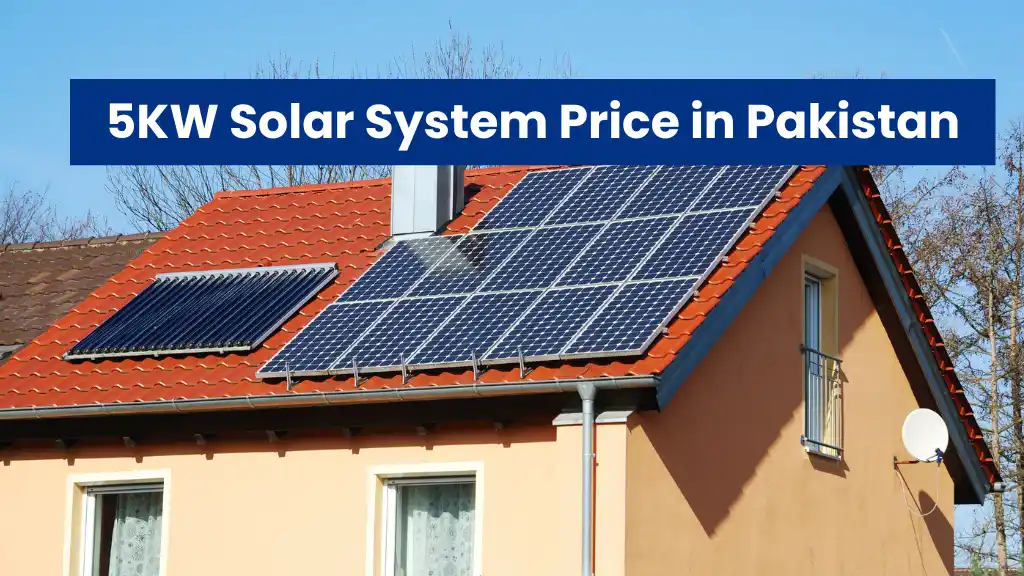
In a country where energy costs are going up and grid reliability is a constant concern, solar power offers a sustainable and cost-effective alternative. A solar system is key component of a solar energy setup. There are various types of solar systems based on capacity like 1KW solar system, 2KW solar system, 3KW solar system and so on. These systems are suitable for different segment of users.
In this post, I will explore 5kW solar system, its price and features. A 5KW solar system is ideal for medium-sized homes and small businesses. The 5kW Solar System Price in Pakistan is higher than 3KW and 4KW systems.This system can produce up to 570 units of energy monthly. Mid-sized homes in Pakistan consume 500 to 600 units in a month. If your electricity consumption is up to 600 units monthly, this solar system is best for your needs.
What is a 5kW Solar System?
A 5kW solar system is a renewable energy setup designed to generate up to 5 kilowatts (kW) of electricity under optimal conditions. It is widely used for residential and small commercial purposes. It offers significant energy savings and reduces reliance on the grid. It’s enough to power a mid-sized home, covering 80–100% of a 600-unit monthly bill
5kW Solar System Price in Pakistan – 2025 Breakdown
5kW Solar System Price in Pakistan can vary by type, quality, and extras like net metering or batteries. Here is a complete cost breakdown.
| Component | Description | Price (PKR) |
| Solar Panels | 9 x 590W N-type panels | 175,230 |
| Inverter | Hybrid inverter | 120,000 |
| Batteries | Double battery setup | 120,000 |
| Frame & Mounting | 5 units | 25,000 |
| Protection Accessories | Breakers, cables, etc. | 20,000 |
| Labor Costs | Installation | 20,000 |
| DC Cables | 10mm imported cables | 30,000 |
| Total Cost | 510,230 |
Components of a 5kW Solar System
This solar system consists of several key components to ensure efficient operation and energy production. Here are the essential components:
Solar Panels
These are the primary components that convert sunlight into electricity.
Solar Inverter
It Converts DC power from the solar panels into AC power for household use. It can be either an on-grid or hybrid inverter, depending on whether you want to connect to the grid or include battery storage.
Mounting Structure
It secures the solar panels firmly onto rooftops or ground installations. Iron racking or aluminum brackets are used to manufacture this structure.
Electrical Wiring and Accessories
It includes DC and AC wiring, connectors, and circuit breakers. There are some other protection devices necessary for safe electrical connections.
Monitoring System (Optional)
We can track solar energy production and solar system performance with this system.We can connect it via Bluetooth or Wi-Fi.
Battery Storage (Optional)
Although battery storage is optional, it is very handy. We can store excess energy generated during sunny periods for use during nighttime.
DB Box with Circuit Breakers
Circuit Breakers are very useful. We can manage electrical distribution safely with circuit breakers and changeover switches.
Ideal roof orientation for maximizing the efficiency of a solar system
Ideal Roof Orientation
The best direction for solar panels in Pakistan is south-facing. This means the panels should face directly toward the south, at an angle of around 180 degrees. This position helps the panels get the most sunlight throughout the day, making them work at their best.
Ideal Roof Angle
For Pakistan, a tilt around 30° is often recommended as it helps maximize energy production while preventing water pooling on flat roofs.
You can optimize your 5kW solar system’s performance in Pakistan by choosing a south-facing orientation with an appropriate angle.
What Affects 5kW Solar System Price in Pakistan?

There are many factors that influence the 5KW solar system price in Pakistan. We have discussed the most common factors here.
System Type: System type can influence the cost. On-grid systems are the cheapest (no batteries), while off-grid setups cost the most due to heavy batteries. Hybrid falls in between with regard to pricing.
Component Quality: Tier 1 panels and branded inverters (e.g., Growatt, Solis) cost more but offer better efficiency and warranties. Local or B-grade options cut prices but there may be a risk of performance.
Location: Costs can vary based on location. Solar System installation in Karachi might cost PKR 40,000, while in rural areas with tricky access could cost PKR 80,000. Urban net metering approvals also add extra fees.
Currency Fluctuations: Most components are imported, so a weaker PKR against the USD in 2025 pushes prices up. Recent stability has helped, but it’s a wildcard.
Incentives: Government incentives also influence the cost of solar systems. Net metering (per NEPRA guidelines) helps to reduce long-term costs by selling excess power back to the grid.
Which type of 5kW solar system is more cost-effective in the long run?
Determining which type of 5kW solar system is more cost-effective in the long run depends on several factors. Here’s a comparison between on-grid and off-grid (or hybrid) systems. This way you can compare benefits and 5KW solar system price in Pakistan.
On-Grid Systems
Cost: Generally less expensive upfront because they don’t require battery storage.
Savings: Can save significantly on electricity bills by generating power during the day and using net metering to offset nighttime usage.
Long-term Benefits: Offers long-term savings through reduced electricity bills but relies on the grid for backup power.
Off-Grid or Hybrid Systems
Cost: More expensive initially due to the need for batteries for energy storage.
Savings: It provides complete energy independence, and allows homeowners to use stored energy at night or during load shedding.This is more beneficial in areas with frequent power cuts.
You should align your choice with your specific needs and preferences.
Environmental Benefits of a 5kW Solar System
Reduced Carbon Footprint
A 5kW solar system can reduce annual CO2 emissions by approximately 8 tonnes, equivalent to planting about 80 trees.
Less Air Pollution
Unlike fossil fuels, solar panels do not release pollutants into the air. It contributes to cleaner air quality and reduced smog formation.
Energy Independence
Solar systems enable households to be less dependent on traditional grid electricity. It promotes energy independence while supporting environmental conservation efforts.
Overall, installing a 5kW solar system is an effective way to contribute positively to the environment by reducing pollution and supporting sustainable energy practices.
Appliances You Can Power with a 5kW Solar System
A 5kW solar system can power a variety of appliances, depending on their energy consumption and usage patterns. Here’s a list of common appliances that you can power with a 5KW solar system.
Low-Power Appliances
LED Lights: Multiple units (e.g., 10 lights).
Ceiling Fans: Several units (e.g., 5 to 6 fans).
Laptops/Computers: One or more, depending on usage.
Medium-Power Appliances
Refrigerator: One unit, especially energy-efficient models.
Washing Machine: One unit, preferably front-loading or energy-efficient models.
LED/LCD TVs: One or two units, depending on size and efficiency.
High-Power Appliances
Air Conditioners (Inverter Type): Up to two units of 1.5 tons each under optimal conditions.
Microwave Oven/Toaster/Juicer Mixer Grinder:
You can run these high-power appliances but with full care as these appliances need higher power.
Overall, a well-managed 5kW solar system can power essential electrical appliances and fulfill the needs of many homes.
Average lifespan of on-grid, off-grid, and hybrid 5kW solar systems?
The average lifespan of on-grid, off-grid, and hybrid 5kW solar systems vary based on their components.
Lifespan of an On-Grid Solar Systems
Solar Panels: These last for 25 to 30 years with proper maintenance.
Inverters: Have a lifespan of about 10 to 15 years.
Overall System Lifespan: The system can operate effectively for around 25 years, but inverters may need replacement during this period.
Lifespan of an Off-Grid Solar Systems
Solar Panels: Similar to on-grid systems, they last about 25 to 30 years.
Inverters: Off-grid inverters also have a lifespan of approximately 10 to 15 years.
Batteries: Need replacement every 5 to 10 years, which affects the overall system lifespan.
Lifespan of a Hybrid Solar Systems
These systems combine elements of both on-grid and off-grid systems.
Solar Panels: Last around 25 to 30 years.
Inverters: Generally last between 10 and 15 years.
Conclusion
In this article, we’ve covered the 5kW Solar System Price in Pakistan in detail. While a 5kW solar system is an excellent choice for medium-sized homes and businesses, it’s important to avoid common mistakes. Be cautious of extremely low prices, as they may indicate poor-quality components or hidden costs. Never compromise on the quality of material for the solar system.

